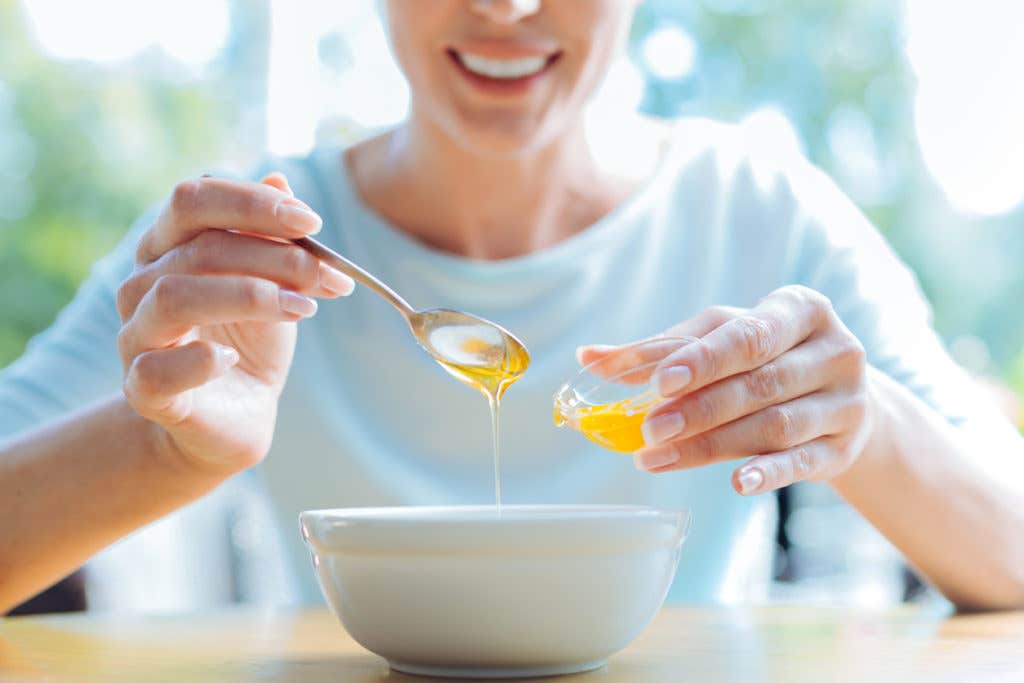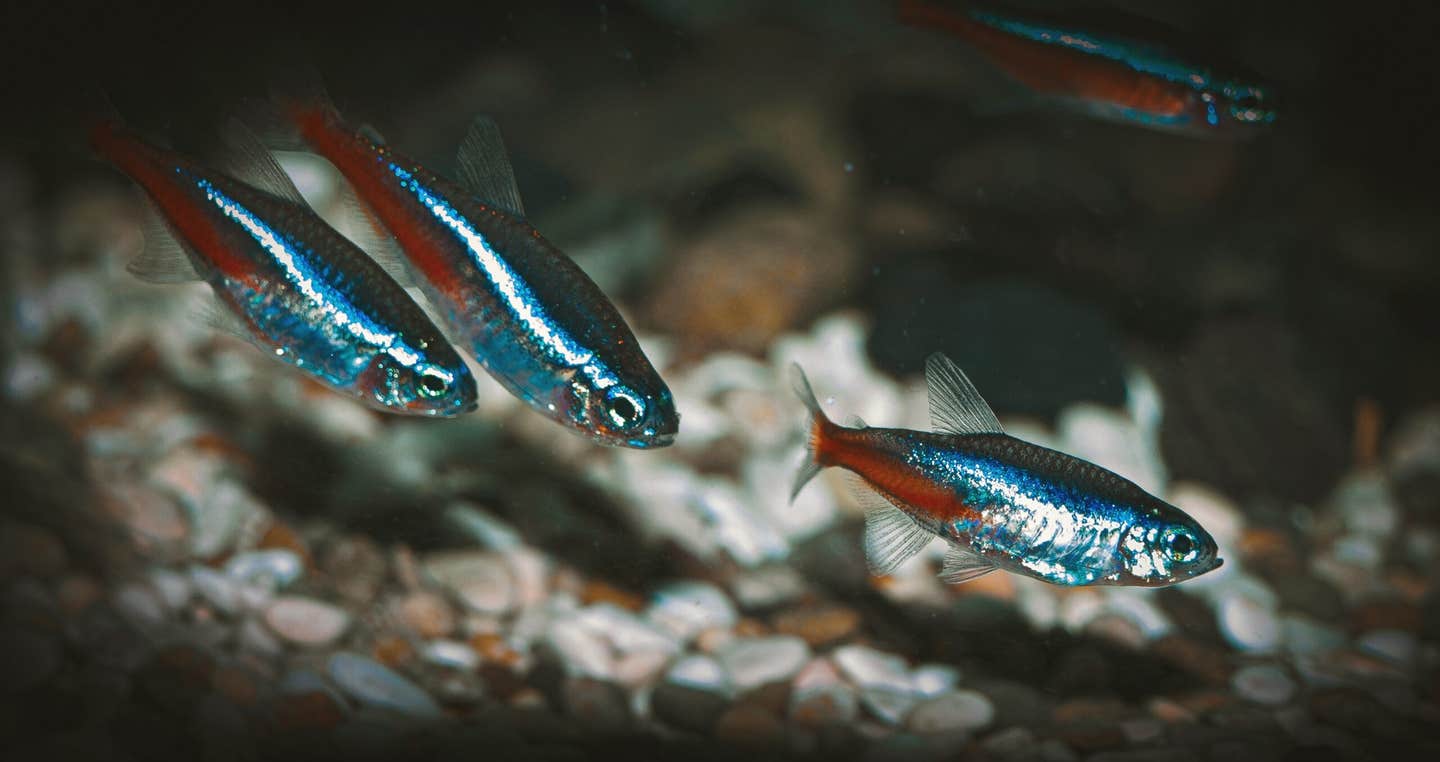Honey is good for your cardiometabolic health, study finds
Honey improves key measures of cardiometabolic health, including blood sugar and cholesterol levels — especially if the honey is raw.

[Nov 19, 2022: Jim Oldfield, University of Toronto]
Honey improves key measures of cardiometabolic health, including blood sugar and cholesterol levels — especially if the honey is raw. (CREDIT: Creative Commons)
Researchers at the University of Toronto have found that honey improves key measures of cardiometabolic health, including blood sugar and cholesterol levels — especially if the honey is raw and from a single floral source.
The researchers conducted a systematic review and meta-analysis of clinical trials on honey, and found that it lowered fasting blood glucose, total and LDL or ‘bad’ cholesterol, triglycerides, and a marker of fatty liver disease; it also increased HDL or ‘good’ cholesterol, and some markers of inflammation.
“These results are surprising, because honey is about 80 per cent sugar,” said Tauseef Khan, a senior researcher on the study and a research associate in nutritional sciences at U of T’s Temerty Faculty of Medicine. “But honey is also a complex composition of common and rare sugars, proteins, organic acids and other bioactive compounds that very likely have health benefits.”
Previous research has shown that honey can improve cardiometabolic health, especially in in vitro and animal studies. The current study is the most comprehensive review to date of clinical trials, and it includes the most detailed data on processing and floral source.
Related Stories
The journal Nutrition Reviews published the findings.
“The word among public health and nutrition experts has long been that ‘a sugar is a sugar,’ said John Sievenpiper, principal investigator and an associate professor of nutritional sciences and medicine at U of T, who is also a clinician-scientist at Unity Health Toronto. “These results show that’s not the case, and they should give pause to the designation of honey as a free or added sugar in dietary guidelines.”
Sievenpiper and Khan emphasized that the context of the findings was critical: clinical trials in which participants followed healthy dietary patterns, with added sugars accounting for 10 per cent or less of daily caloric intake.
“We’re not saying you should start having honey if you currently avoid sugar,” said Khan. “The takeaway is more about replacement — if you’re using table sugar, syrup or another sweetener, switching those sugars for honey might lower cardiometabolic risks.”
The researchers included 18 controlled trials and over 1,100 participants in their analysis. They assessed the quality of those trials using the GRADE system and found there was a low certainty of evidence for most of the studies, but that honey consistently produced either neutral or beneficial effects, depending on processing, floral source and quantity.
The median daily dose of honey in the trials was 40 grams, or about two tablespoons. The median length of trial was eight weeks. Raw honey drove many of the beneficial effects in the studies, as did honey from monofloral sources such as Robinia (also marketed as acacia honey) — a honey from False Acacia or Black Locust Trees — and clover, which is common in North America.
Summary plot for the effect of honey consumption on cardiometabolic risk factors. The white squares indicate no downgrades were made, while solid black squares indicate a single downgrade or upgrade was made for each outcome. (CREDIT: Nutrition Reviews)
Khan said that while processed honey clearly loses many of its health effects after pasteurization — typically 65 degrees Celsius for at least 10 minutes — the effect of a hot drink on raw honey depends on several factors, and likely would not destroy all its beneficial properties.
He also noted other ways to consume unheated honey, such as with yogurt, as a spread and in salad dressings.
Summary plot for the effect of raw vs processed honey consumption on cardiometabolic risk factors. The white squares indicate no downgrades were made, while solid black squares indicate a single downgrade or upgrade was made for each outcome. (CREDIT: Nutrition Reviews)
Future studies should focus on unprocessed honey, Khan said, and from a single floral source. The goal would be higher quality evidence, and a better understanding of the many compounds in honey that can work wonders for health.
“We need a consistent product that can deliver consistent health benefits,” said Khan. “Then the market will follow.”
Other benefits of honey:
Research on honey for specific conditions includes:
Cardiovascular disease. Antioxidants in honey might be associated with reduced risk of heart disease.
Cough. Studies suggest that eucalyptus honey, citrus honey and labiatae honey can act as a reliable cough suppressant for some people with upper respiratory infections and acute nighttime cough.
Gastrointestinal disease. Evidence suggests honey might help relieve gastrointestinal tract conditions such as diarrhea associated with gastroenteritis. Honey might also be effective as part of oral rehydration therapy.
Neurological disease. Studies suggest that honey might offer antidepressant, anticonvulsant and anti-anxiety benefits. In some studies, honey has been shown to help prevent memory disorders.
Wound care. Topical use of medical-grade honey has been shown to promote wound healing, particularly in burns.
Safety and side effects (according to the Mayo Clinic)
Honey is likely safe for use as a natural sweetener, cough suppressant, and topical product for minor sores and wounds.
Avoid giving honey — even a tiny taste — to babies under the age of 1 year. Honey can cause a rare but serious gastrointestinal condition (infant botulism) caused by exposure to Clostridium botulinum spores. Bacteria from the spores can grow and multiply in a baby's intestines, producing a dangerous toxin.
Some people are sensitive or allergic to specific components in honey, particularly bee pollen. Although rare, bee pollen allergies can cause serious, and sometimes fatal, adverse reactions. Signs and symptoms of a reaction include:
Wheezing and other asthmatic symptoms
Dizziness
Nausea
Vomiting
Weakness
Excessive perspiration
Fainting
Irregular heart rhythms (arrhythmias)
Stinging after topical application
Honey might affect blood sugar levels.
Note: Materials provided above by University of Toronto. Content may be edited for style and length.
Like these kind of feel good stories? Get the Brighter Side of News' newsletter.



